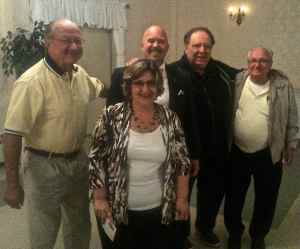By Matthew J. Brouillette
Pennsylvania’s government union executives should be at the top of any list of political power players in Harrisburg. With the kind of influence that millions in campaign contributions and political ads can buy, shouldn’t they follow the same lobbying laws as other political organizations?
Wendell Young IV, president of the United Food and Commercial Workers (UFCW) union Local 1776, says yes. He told the watchdog group Media Trackers, “We shouldn’t be held to a different standard than everyone else.”
But the fact is, they are – it’s just a much lower one. And a recent investigation reveals an above-the-law attitude that goes beyond mere political privilege.
Media Trackers reports that the heads of three major public unions are not – and haven’t ever – registered as lobbyists, as a 2006 state law requires. A Commonwealth Foundation search of the Pennsylvania Department of State’s lobbyist database confirms this. Yet these union executives maintain frequent contact with lawmakers and staff, in person and via phone and e-mail, on legislative issues.
Young and David Fillman, executive director of the American Federation of State, County, and Municipal Employees (AFSCME) Council 13, are required to report their lobbying to the federal government. According to public records filed with the U.S. Department of Labor and examined by Media Trackers, Young reported 8 percent of his time as being spent on “political activities and lobbying,” while Fillman claimed 15 percent. Pennsylvania AFL-CIO president Rick Bloomingdale, the third union leader mentioned in Media Trackers’ investigation, isn’t required to make the same reports.
None of the three is registered to lobby in Harrisburg, though other leaders of nonprofits – such as the Pennsylvania State Education Association (PSEA) president, Michael Crossey, and Gene Barr, president of the Pennsylvania Chamber of Business and Industry, are.
When confronted about the lack of registration by a Pennsylvania Independent reporter, Young replied, “Clearly I do lobby, but it’s not my primary function as president of the union.” Young was paid $23,421 (8 percent of his $292,765 salary) for political activity and lobbying in 2013. Registration is required by the commonwealth if payment for lobbying exceeds $2,500 per quarter.
How can union leaders lobby against liquor privatization and pension reform for years without registering as lobbyists? No one’s been checking up on them – until now.
Such activities should be a wakeup call for union members who think their dues are separate from political activities. They aren’t.
Union members’ dues can legally be spent on political activity, whether in the form of political commercials, paid lobbyists, or get-out-the-vote efforts. Indeed, the PSEA told its members last year that as much as $7 million of their dues could be spent on “lobbying and political expenses” in 2013-2014.
In the case of the UFCW, even workers who have opted out of the union are forced to fund political activities.
Recently, some absurd ads vilifying the prospect of selling wine in grocery stores have blanketed the state. (They claim, “It only takes a little bit of greed to kill a child.”) Those ads were paid for by the UFCW, which funded a similarly over-the-top $1 million ad campaign last year.
But when the union reported last year’s campaign to the U.S. Department of Labor, it called the nakedly political ads a “representational activity” rather than a “political” one – and the difference matters.
Government workers, like teachers or liquor store clerks, who don’t wish to fund political ads can opt out of union membership. But in many cases, they still have to pay the union a “fair share” fee, which is supposed to only cover “representational activity,” like collective bargaining costs. That fee cannot be used for politics.
The union may view ad campaigns as “representational,” but lobbying on issues before the legislature is clearly “political.” Beyond the legal questions involved, the liquor store clerks and teachers who have jumped through hoops to keep their money from being spent on politics are still being forced to fund union political activity.
And this all happens courtesy of the taxpayers. Government union leaders use public resources to collect union dues, fees, and campaign contributions from workers’ checks and then spend that money on politics with impunity. In recent years, several elected state officials have been prosecuted for using public resources for partisan purposes.
If we can’t control the behavior of union leaders, we can at least stop using taxpayer resources to collect union political money. Tell your representatives in Harrisburg to support paycheck protection, which would prevent governments from deducting union dues from the checks of public employees – and force unions to play by the same political rules as everyone else.
Matthew J. Brouillette is president and CEO of the Commonwealth Foundation (CommonwealthFoundation.org), Pennsylvania’s free market think tank.

Union Leaders Above Law
Like this:
Like Loading...




